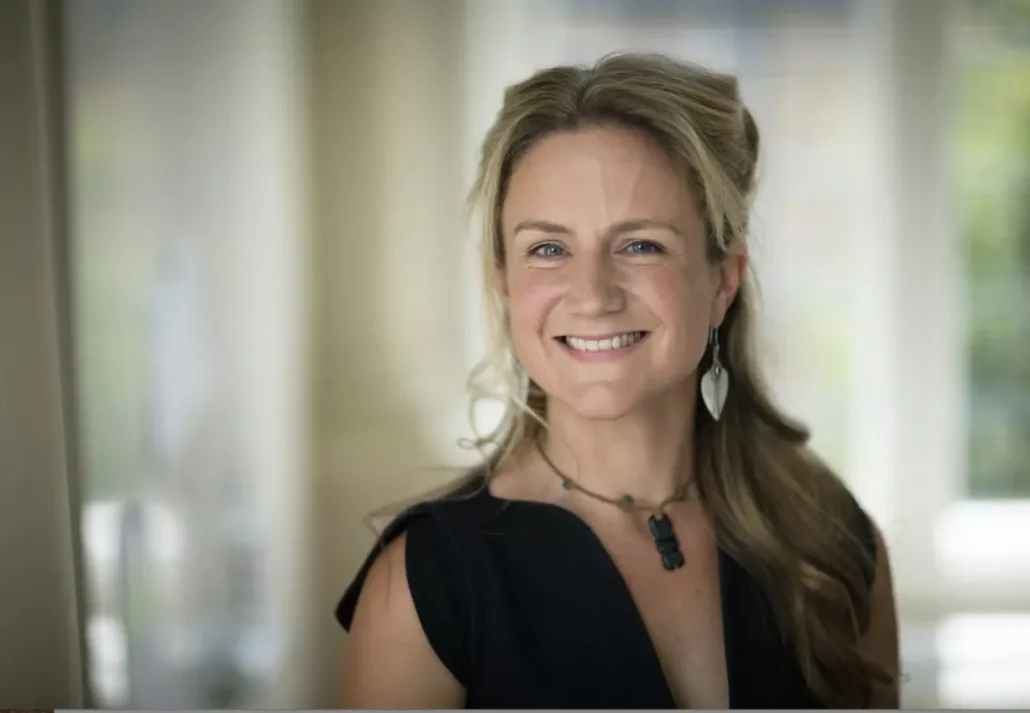
Interview with Prof Nathalie Seddon by Climate Perspectives magazine
As a member of the UK Climate Change Committee’s Adaptation Committee, Nathalie Seddon, professor of biodiversity and founding director of the Nature-based Solutions Initiative in the Department of Biology at the University of Oxford, is a key figure in the battle to combat climate change. She spoke to Andy Walker for Climate Perspectives.
Nathalie Seddon is passionate about nature. “From the earliest stages of my life, the central concern for me was not climate change, but rather the loss of nature. Even at the tender age of eight or nine, I was filled with outrage and sorrow witnessing the destruction of nature,” she tells me. Seddon says that nature has always felt deeply personal for her, describing it as “a sustained heartbreak that originated from encounters with littering and road construction during my early years”. When she began working in the tropics and witnessed first-hand the immense damage and devastation in the most biodiverse and breathtaking places on earth, her anguish only intensified. “It pierced me to the core and I could not bear it then, nor can I now. This pain, coupled with an intense love for nature, drives everything I do,” she says.
The issue of climate change took longer to penetrate Seddon’s consciousness, initially capturing her attention through its impact on nature. “While I was undoubtedly concerned, the pivotal moment came with the birth of my first child,” she says. “Previously, as an evolutionary biologist, my focus had been on timescales spanning millennia. However, with the arrival of my child, the immediate future gained importance, and my appreciation for humanity deepened,” Seddon says.
Like many who work in this sector, Seddon says there’s no typical day or week in her role. “One of the joys and also challenges of my job is the variety – some days I’m teaching or lecturing, other days talking to government, others with businesses,” she says. “I could be editing and writing reports, scientific articles or policy briefs and I also give a lot of talks and webinars. I run courses, discuss science with my amazing team, but a common thread is the topic – nature and climate change – and the currency is always incredible people. People often ask, how do I stay positive and it’s the inspiring folks I work with that keep me positive and sane,” she tells me.
I ask Seddon whether, as a woman in a prominent role in the sustainability arena, she sees herself as a role model for others and whether the sector should be doing more to encourage diversity? “It often appears that women are taking the lead in tackling the climate crisis, whether at local levels or on the global stage,” she says. “A comprehensive approach, characterised by holistic thinking and creative collaboration, is necessary to resolve these challenges and many women excel in these areas. I am fortunate to be among these individuals and one of the great joys of my work is the opportunity to collaborate with them. Could I be considered a role model? Perhaps. I strive to align my actions and lifestyle with my principles, following my heart and actively supporting and empowering those around me, regardless of their ethnicity or gender identity,” says Seddon.
Seddon is keen to highlight diversity when it comes to sustainability. “It is crucial for all sectors, including the environmental sector, to actively promote diversity. Addressing climate change and biodiversity loss requires the inclusion of diverse voices and values. In particular, greater efforts are needed to amplify the voices and wisdom of indigenous peoples, as well as the perspectives of youth from all walks of life and identities. The ongoing destruction of the climate system and biosphere is a reflection of the lack of diversity and, consequently, a profound disconnection from nature,” she explains.
As someone involved in advising governments, UN agencies and businesses on nature-based solutions to societal challenges, how does Seddon think the UK is doing when it comes to combatting climate change? “The UK has the opportunity to drive a green revolution, encompassing not only renewable energy but also the preservation of nature,” she says. “However, we continue to grapple with vested interests rooted in the old model, clinging to business-as-usual practices and linear GDP-based economic thinking.”
While praising the UK for being a global pioneer in confronting the climate crisis and the first country to enact a Climate Change Act and as part of that legislation, establishing a legally binding target to achieve net zero greenhouse gas emissions by 2050, Seddon is concerned about current policies falling short of the necessary ambition to meet targets. “They lack robust plans for financing and governance and fail to adequately consider negative impacts on biodiversity and adaptation. It is concerning that there seems to be inadequate planning for the synergy between climate mitigation, adaptation and biodiversity goals. Scaling up biomass and forestry without considering the impact on biodiversity compromises the resilience of our ecosystems and the sectors of our economy that rely on them. So, careful planning is crucial, Seddon says.
Seddon’s passion for nature is clear throughout our conversation. Having people like her to hold the government to account on its climate change policies is crucial and there is no doubt that she and her colleagues in both the UK Climate Change Committee’s Adaptation Committee and the Nature-based Solutions Initiative, will continue to hold politicians’ feet to the fire on this crucial issue for us all.
This interview was carried out by Andy Walker, Binary Carbon – publisher of Climate Perspectives magazine.
*See all recent Climate Perspectives editions here.